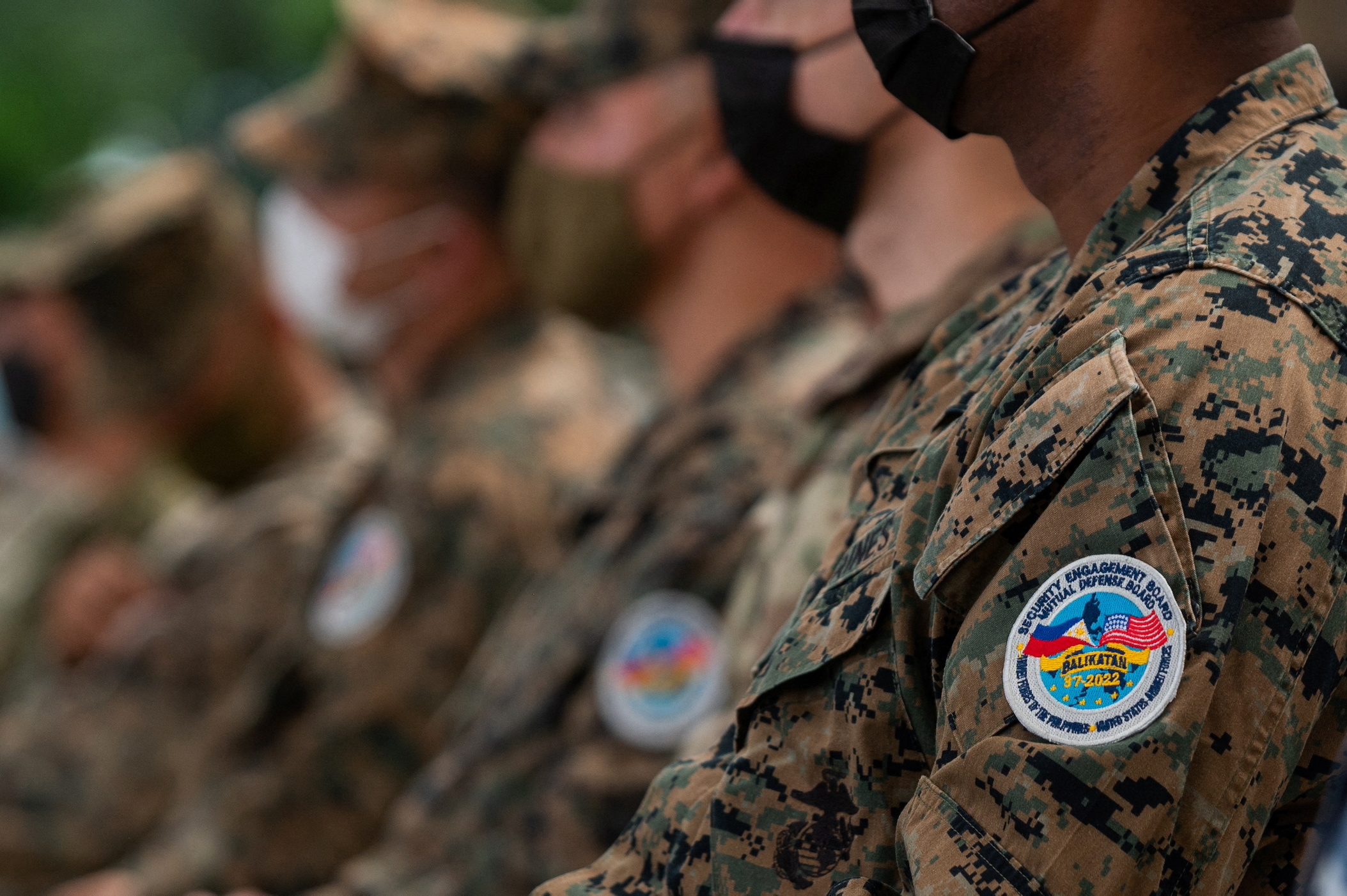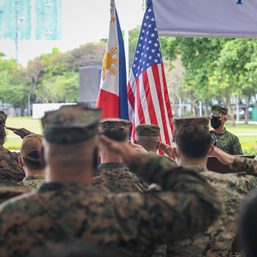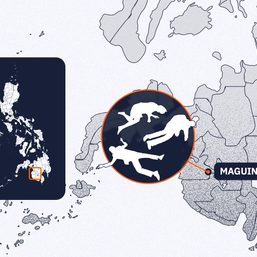SUMMARY
This is AI generated summarization, which may have errors. For context, always refer to the full article.

MANILA, Philippines – Slow progress has been made between the Philippines and the US in implementing the Enhanced Defense Cooperation Agreement (EDCA).
Complete fulfillment of the deal, signed in 2014, has yet to be seen.
This year, US Defense Secretary Lloyd Austin’s visit to the Philippines from January 31 to February 2 includes the agenda of “speeding up” EDCA’s implementation. Four new locations for infrastructure projects were announced on Thursday, February 2.
What has happened over the past nine years since the agreement was signed?
Pre-EDCA treaties
Including the EDCA, the Philippines currently has three defense-related treaties with the US.
The Philippines and the US signed a mutual defense treaty in August 1951, as an agreement to provide support and aid to one another in the event of external attacks.
To enhance bilateral defense cooperation between the two nations, the Visiting Forces Agreement (VFA) was ratified on May 27, 1999.
The VFA was meant to allow US troops ease of access to Philippine military installations around the country such as the waiving of visa and passport requirements, among others.
Most importantly, the agreement allows the US government to retain jurisdiction over its troops while on Philippine soil unless said crimes are of “particular importance” to the Philippines.
EDCA stipulations
With talks that began as early as August 2013, the EDCA was signed between ex-defense secretary Voltaire Gazmin and ex-US ambassador Philip Goldberg on April 28, 2014.
It reiterated statements from the previous agreements, adding the construction of infrastructure and military storage facilities in select Philippine bases.
The US, however, is not allowed to construct a permanent base in the country. (READ: PH primer on military pact with US)
Whatever bases are constructed in the country will eventually be the property of the Philippine military.
Nuclear weapons are not allowed to be stored in the Philippines, under the agreement.
The agreement had an initial validity of 10 years, and will automatically be in force until a one-year notice is given by either party to terminate the agreement.
The 10-year validity period will end on June 25, 2024, or a year from now.
EDCA’s constitutionality
After its signing, the EDCA underwent much criticism, particularly for its constitutionality.
Petitions were written to the Supreme Court (SC) in May 2014, declaring its unconstitutionality due to the agreement not being signed without Senate approval.
Other petitions have called the agreement an “unequal and exploitative love affair.” (READ: Justices to EDCA critics: How to defend West PH Sea? and SolGen: EDCA no guarantee US will aid PH in sea dispute)
Oral arguments began on November 18, 2014, and ended on November 25 that year.
The SC ruled 10-4-1 on January 12, 2016, for the agreement to be constitutional, maintaining that the EDCA is an executive agreement that does not need Senate approval.
Slow progress
Different issues have surfaced surrounding the EDCA over the past nine years.
Months into the EDCA’s signing, US Marine Joseph Pemberton was suspected of murdering transgender Jennifer Laude in October 2014.
Due to the VFA in effect, US authorities took custody of Pemberton and denied the request of local authorities for the custody of the soldier. (TIMELINE: The killing of Jennifer Laude and release of Joseph Scott Pemberton)
Pemberton was charged with murder and trials began a year later. He was found guilty of homicide on December 1, 2015. Then-president Rodrigo Duterte pardoned Pemberton in September 2020 and was deported a few days after.
Duterte himself wanted to rid of EDCA, putting it under review and saying that he wanted to scrap it altogether. Projects under the agreement were put on hold during his administration.
At the time, only one base in Palawan had construction completed.
He eventually upheld the agreement during then-US president Donald Trump’s visit to the country on November 2017.
Later into the Duterte administration, the two countries met in Washington DC in September 2021 to discuss bilateral agreements, including the resumption of projects under the EDCA.
The Department of National Defense released a statement in November 2022 stating that three of five infrastructure projects will begin the following year, as the US commited $66.5 million towards construction. – Rappler.com
Add a comment
How does this make you feel?



![[EDITORIAL] Paano tayo makakapuwing sa Tsina sa West Philippine Sea?](https://www.rappler.com/tachyon/2023/10/animated-wps-october-2023-carousel.jpg?resize=257%2C257&crop_strategy=attention)






There are no comments yet. Add your comment to start the conversation.